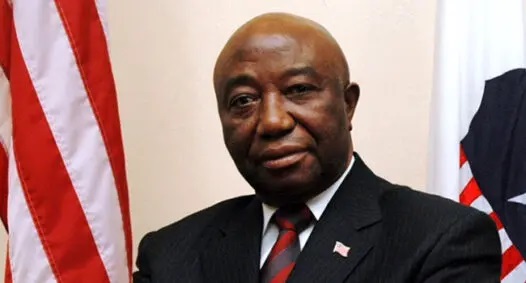A Commentary by Wondah L. Jah
In a stunning development, the Unity Party Government in Liberia, led by Joseph Boakai, finds itself embroiled in a controversy surrounding the removal of individuals from the government’s wage bill. These individuals, labeled as “Ghosts,” have sparked a heated debate over the motives behind their dismissal.
The government asserts that these “Ghosts” were wrongly included in the payroll, draining valuable state resources. However, doubts have arisen regarding the true nature of these individuals. Some question whether they are truly ghosts or if this is part of an international scheme orchestrated by the Boakai regime to eliminate its citizens from employment.
One notable case is that of the Executive Mansion, the Liberian President’s office, where over 700 Liberians were suddenly terminated and classified as “Ghosts” by the human resource department. Despite meeting face-to-face with these individuals, they were still dismissed under this questionable designation.
Adding to the confusion, the Executive Mansion later claimed that these same “Ghosts” were part of a supplementary payroll that had to be cut due to insufficient funding. This contradiction casts doubt on both the legitimacy of the term “Ghosts” and the government’s decision to let go of these individuals.
Furthermore, it is observed that a significant number of those affected by these dismissals are supporters of George Weah, the previous leader of Liberia. This fuels speculation that the Boakai Government intentionally targets Weah’s supporters, implying that they no longer deserve government employment since Weah is no longer in power. But is this a wise decision? Does it serve President Boakai’s security and the stability of the state?
The Boakai regime’s inability to secure funding for supplementary payrolls raises concerns about their financial management capabilities. How was Weah able to ensure the timely payment of these Liberians, while the current government struggles to find the necessary funds? While addressing any issues pertaining to a bloated wage bill is important, it is equally crucial for the government to fulfill its responsibility of creating employment opportunities for its citizens, as promised by President Boakai. Unfortunately, the Civil Service boss has threatened further dismissals based on the same grounds put forth by the Executive Mansion. President Boakai must be reminded that unemployment breeds insecurity and diminishes popularity. Dismissing approximately 20,000 Liberians from their jobs will undoubtedly create unrest and dissatisfaction among the affected individuals, potentially undermining the Boakai administration.
It is evident that such a large-scale termination of employees solely because they were employed during the Weah Administration will only serve to elevate Weah’s image and tarnish the Boakai administration. This could foster a desire among the victims to see the Boakai administration swiftly removed from power. While supporters of Boakai may contest this viewpoint, a nationwide conversation is imperative to address this troubling situation and ensure that any decisions made are not perceived as targeting these Liberians solely due to their alleged support for Weah.
There are three notable actions undertaken by Weah that could potentially embarrass the Boakai government for an extended period. These include the issue of high school government exam fees, the provision of free school fees in public universities, and the mass employment of numerous Liberians in both the civil service and supplementary payrolls. Irrespective of the legality of Weah’s actions, reversing any of these initiatives will assuredly have a significant impact on the survival of the Unity Party Government led by President Boakai.
In light of these circumstances, it is crucial for the Boakai administration to engage in thoughtful and introspective decision-making. A government cannot flourish amidst a crisis, and the resolution of these crucial issues is essential for the administration’s success.








